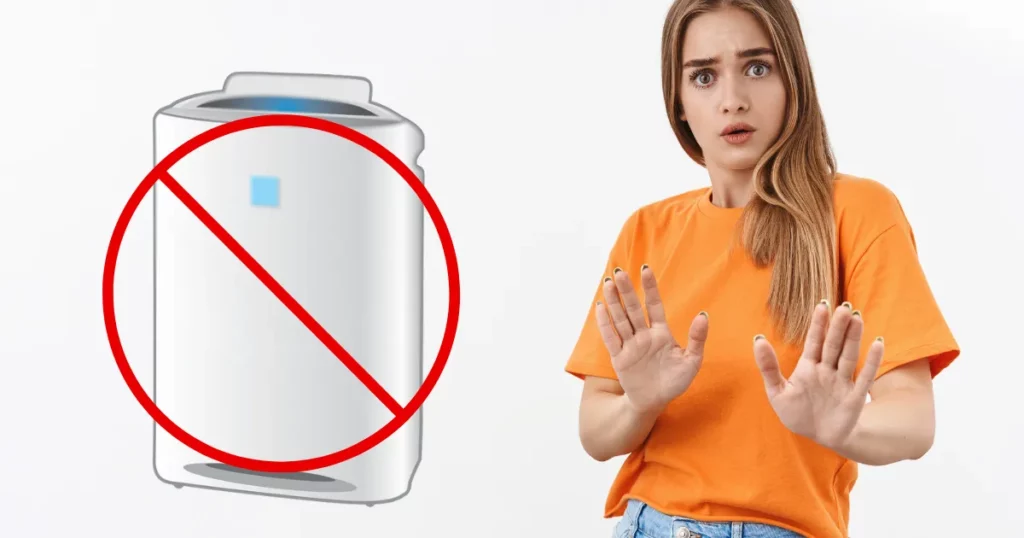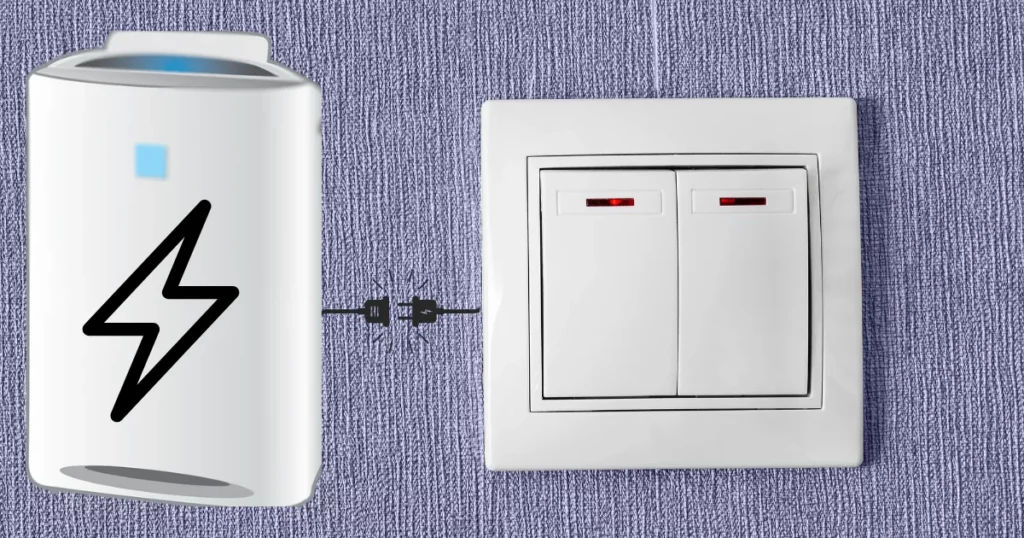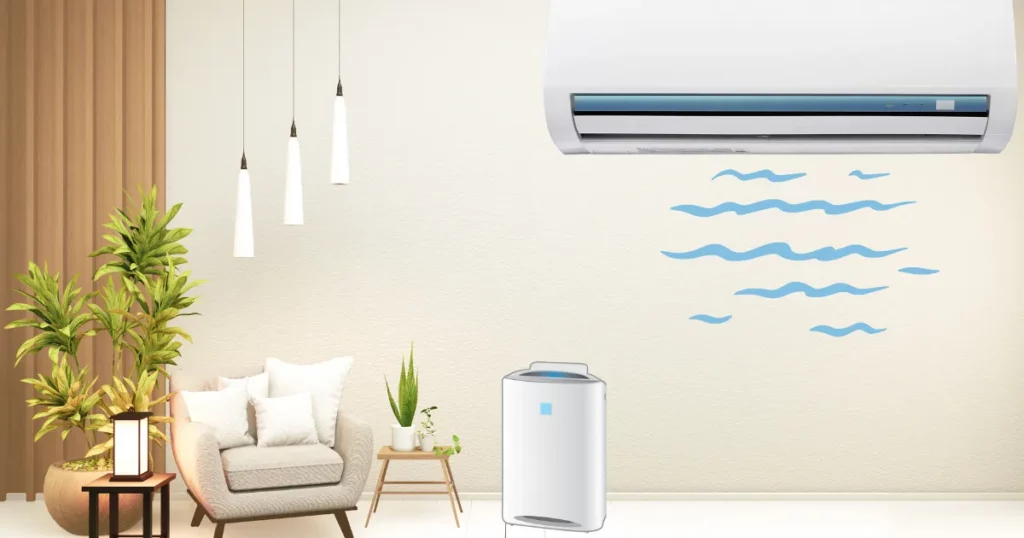“Are air purifiers a waste of money?” is the most asked question when people want to buy air purifiers to improve the air quality in homes and offices. Air purifiers are more popular nowadays because people give more importance to their health and air quality at home.
Air purifiers have many benefits such as they can help to reduce asthma and allergy diseases, remove dangerous chemicals and odors, decrease the chances of airborne diseases, mitigate radon gas, and also improve air quality. By keeping these benefits in mind, the short answer is no, air purifiers are not a waste of money. Now take a closer look at this topic.
Contents
Are air purifiers a waste of money?
Air purifiers aren’t necessarily a waste of money, however, their effectiveness and value can vary depending on individual circumstances. The indoor air quality can be improved by using air purifiers. They remove dust, pet dander, allergens, and other harmful particles which are dangerous to your health.
According to the Environmental protection agency, indoor air is commonly two to five times extra polluted than outdoor air. The air purifier with a HEPA filter, which is certified to collect 99.97% of particles of a certain size can be useful for removing common household irritants.
Although air purifiers are useful they have some limitations, such as they can only capture allergens while they’re airborne and may not be effective for removing large and heavier particles that settle on surfaces quickly, such as pollen, mold, and mites. Additionally, air purifiers may not be as effective in tackling gases, and some types of pollutants may require specialized filters or technologies to address them effectively.
How Do Air Purifiers Work?
Air Purifiers work by employing various technologies and filters to capture and eliminate harmful particles.
The most popular technology is mechanical filtration, which uses fans to push air through fine fibers. Filters with fine mesh, known as HEPA filters, are very effective in trapping particles as small as 0.3 micrometers in diameter.
Another type of filter used in air purifiers is activated carbon filters. These filters use activated carbon to capture certain gases and odor-causing molecules. However, they are not as effective against formaldehyde, ammonia, or nitrogen oxide. In many cases, air purifiers incorporate both activated carbon filters and mechanical filters to tackle a broader range of pollutants.
The Impact of Air Purifiers on Indoor Air Quality
Indoor air quality can be worse than outdoor air because pollutants are often more concentrated. The factors that cause bad air quality are dirt, smoke, pet dander, and volatile organic compounds (VOCs). Air purifiers can help you to remove these factors and create a healthy and clean indoor environment for you.
According to research studies, air purifiers with HEPA filters are more beneficial for removing common household irritants, which reduces the risk of respiratory problems.
Do Air Purifiers Really Work?
Yes, air purifiers really work, but their effectiveness is dependent on several factors. As I mention earlier air purifiers with HEPA filters are more effective for removing harmful particles from the air. However, air purifiers only capture particles while they are airborne. Once particles have settled on surfaces, such as dust on furniture or pollen on the floor, a vacuum cleaner or other cleaning methods are needed to remove them effectively.
It’s important to choose the right air purifier for your specific needs. Before choosing air purifiers you should consider factors such as the type of pollutants you want to remove, the size of the room, and the air purifier’s clean air delivery rate (CADR). For satisfactory performance and results, you have to understand your requirements and select an air purifier according to your need.
Common Misconceptions about Air Purifiers
There are numerous misconceptions and myths surrounding air purifiers that need to be addressed. let’s debunk some of the most common ones:
- Air purifiers eliminate all odors: While air purifiers with activated carbon filters can help reduce certain odors, they may not eliminate strong odors completely. It’s important to manage the source of the odor and use appropriate air fresheners or odor eliminators alongside an air purifier.
- Air purifiers are a substitute for proper ventilation: While air purifiers can enhance indoor air quality, they may not be a substitute for proper ventilation. Opening windows and circulating fresh outdoor air is still essential for maintaining good air quality.
- All air purifiers are the same: Air purifiers vary in terms of technology, filters, and performance. It’s crucial to choose a reputable brand and select an air purifier that meets your specific needs.
- Air purifiers can cure respiratory conditions: While air purifiers can help reduce triggers for respiratory conditions, they cannot cure or treat respiratory illnesses on their own. Consult a healthcare professional for appropriate medical advice.
People also read: Do air purifiers harm house plants?
Air Purifiers That You Should Avoid

While many air purifiers are effective and beneficial, some models may not deliver the desired results. It’s important to be cautious and avoid air purifiers that make false claims or lack adequate filtration capabilities.
- Ozone generators: These devices emit ozone, a lung irritant that can worsen respiratory conditions. Ozone generators are not recommended for indoor air purification.
- Ionic air purifiers: These purifiers release charged particles that attach to airborne particles, causing them to settle. However, the settled particles can become dislodged easily and re-enter the air, reducing the overall effectiveness of the purification process.
When selecting an air purifier, it’s advisable to research different brands, read customer reviews, and choose reputable models that have been tested and proven to be effective.
Important Factors to Consider When Buying an Air Purifier
Before buying an air purifier, keep in mind the following elements to ensure you make an informed decision:
- Room size: Determine the square footage of the room where you intend to use the air purifier. select a version that is appropriate for that room size to ensure the best performance and efficiency.
- Filtration efficiency: Look for air purifiers with HEPA filters, as they are highly effective in capturing small particles and allergens.
- CADR rating: Clean air delivery rate indicates how quickly an air purifier can filter air. Compare CADR ratings to determine the device’s efficiency in cleaning the air within a specific room size.
- Noise levels: Consider the noise levels of the air purifier, especially if you plan to use it in areas where silence is important, such as bedrooms or offices.
- Maintenance and filter replacement: Check the cost and frequency of filter replacements. Some filters need to be replaced more frequently than others, so factor in the ongoing maintenance costs when making your decision.
- Additional features: Look for additional features such as timers, air quality sensors, and adjustable fan speeds, which can enhance the convenience and effectiveness of the air purifier.
By considering these factors, you can choose an air purifier that suits your specific needs and provides optimal performance.
Advantages Of Air Purifiers
Investing in an air purifier offers several advantages:
- Improved indoor air quality: Air purifiers are very useful for removing pollutants, allergens, and irritants from the air, leading to cleaner and more healthy indoor environments.
- Reduced allergy symptoms: By capturing allergens like dust, pollen, and pet dander, air purifiers can alleviate allergy symptoms and provide relief for individuals with respiratory conditions.
- Odor reduction: Air purifiers with activated carbon filters can help reduce unpleasant odors from cooking, pets, or other sources, making the air fresher and more pleasant.
- Better sleep quality: Cleaner air can contribute to better sleep by decreasing the presence of airborne particles which can irritate the breathing system and disrupt sleep.
- Protection against airborne viruses: while not a definitive solution for preventing viral infections, air purifiers can assist lessen the concentration of airborne viruses, such as viral droplets, thus potentially decreasing the chance of transmission.
By incorporating an air purifier into your indoor environment, you can enjoy these benefits and create a healthier and more comfortable living space.
Do Air Purifiers Use Much Electricity?

The electricity consumption of air purifiers varies depending on factors such as the model, fan speed settings, and usage duration. However, maximum air purifiers are designed to be energy-efficient and consume quite low amounts of electricity as compared to different household home equipment.
To make sure energy efficiency, select an air purifier with an energy star certification, which means that the device meets strict energy efficiency guidelines set by the Environmental protection agency (EPA).
Do I need an air purifier if I have an AC

Air conditioning systems (AC) primarily focus on cooling and maintaining temperature levels within a space. While AC units may help to some extent in filtering out larger particles and improving air circulation, they are not specifically designed to purify the air or remove microscopic allergens and pollutants.
In case you are worried about indoor air quality and want to lessen the presence of allergens, pollutants, or odors, an air purifier can be a valuable addition, even in case you already have an AC system. Air purifiers target and capture smaller particles that can be missed by AC filters, resulting in cleaner and healthier air.
Conclusion
In conclusion, whether air purifiers are a waste of money depends on individual needs and circumstances. They can be beneficial for those with respiratory conditions or in environments with poor air quality. However, for others without specific concerns, proper ventilation and preventive measures may be sufficient. Ultimately, it’s important to consider individual requirements and conduct research before investing in an air purifier.






0 Comments